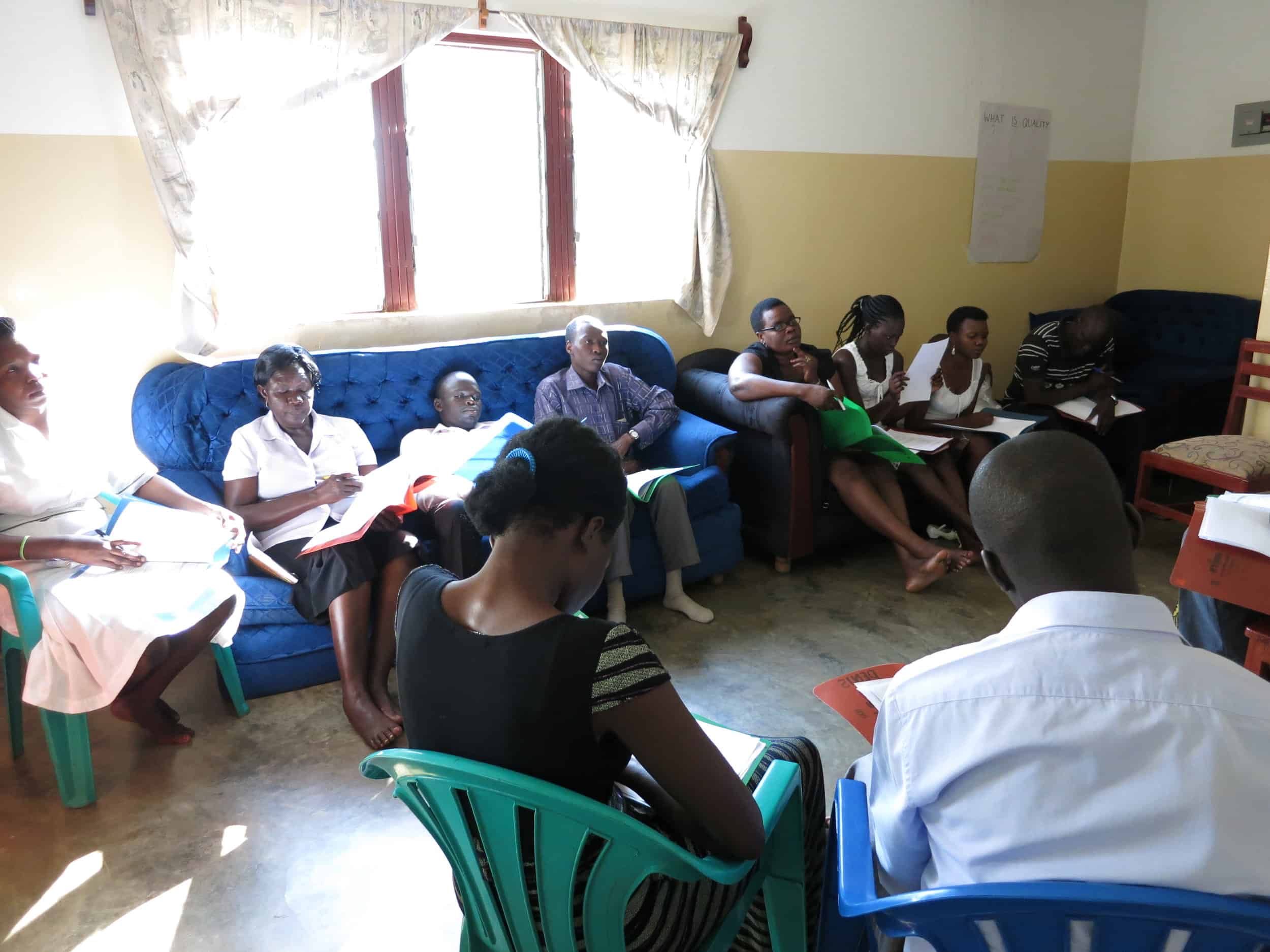Our UNC interns in Uganda have been working the past couple of months on improving health care operations at New Life Medical Center. Tori shares what she learned from the experience.
Have you ever been frustrated with your job? How do you make an impact at work?
Brianne and I have started teaching the clinic staff here in Northern Uganda about a process for quality improvement.
Before I go on, here a little definition on quality improvement (QI) according the U.S. Department of Health and Human Services.
Quality improvement (QI) consists of systematic and continuous actions that lead to measurable improvement in health care services and the health status of targeted patient groups. The Institute of Medicine’s, which is a recognized leader and advisor on improving the Nation’s health care, defines quality in health care as a direct correlation between the level of improved health services and the desired health outcomes of individuals and populations.
We want to empower our friends at New Life by having just enough structure in their health care system (but not so much that it bogs things down in paperwork) to initiate their own quality projects at any time.
Doesn’t that sound exciting? We have seen quality improvement achieve amazing results for patients and staff all over the world, but I have to admit, I was worried about leading our first session.
We woke up at the crack of dawn to hang posters, warm chapatti flatbreads and go over our talk. When I launched into what I hoped would be a lively discussion of what quality means to us, at first I heard… crickets.
Maybe it was the phrase I used. “Have you ever been blown away by the quality of a service?” That might not mean anything to Ugandan ears. Working in a cross-cultural environment can take you by surprise at any moment. It’s hard to know what will resonate.
Thankfully, things got so much more interactive when we left the abstract behind and began brainstorming actual areas to improve. The staff came up with such great ideas for projects, they blew me away! We talked about completing every visit within one hour (very ambitious for any clinic), relying on patient history to deliver more personalized care, and developing a system to flag HIV patients who need certain tests to be run. At the end of the morning 10 people signed up to learn even more and implement projects for the clinic.
Starting next week, we’ll be forming teams and testing out their ideas. Stay tuned!
More Stories:
Categories





